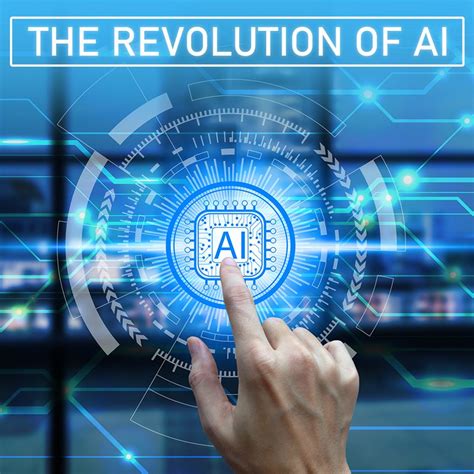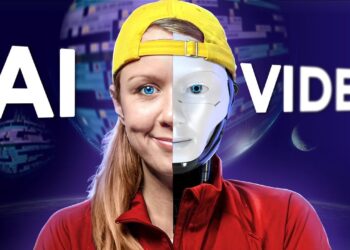The landscape of education is undergoing a profound transformation driven by advances in artificial intelligence (AI). From personalized learning paths to automated grading systems, AI-powered platforms are reshaping how students learn and how educators teach. This article explores the evolution of AI in education, highlights key features of leading platforms, examines global examples, discusses benefits and challenges, and offers best practices for successful implementation.
The Evolution of Educational Technology
Over the past few decades, educational technology has evolved from simple computer-based drills to sophisticated, AI-driven ecosystems. Early e‑learning systems in the 1990s focused primarily on digitizing textbooks and delivering static quizzes. By the 2000s, Learning Management Systems (LMS) like Moodle and Blackboard enabled instructors to manage course materials and track student progress online.
The real inflection point came in the 2010s, as AI algorithms matured and big data analytics became accessible. Educational platforms began leveraging machine learning to analyze student performance in real time, adjusting content delivery on the fly. Natural Language Processing (NLP) allowed systems to understand and respond to student queries conversationally, while computer vision enabled automated proctoring and handwriting recognition. Today’s AI-powered platforms represent the culmination of these trends, offering adaptive, personalized, and scalable solutions that cater to diverse learning styles.
Key Features of AI-Powered Platforms
AI-driven educational platforms differentiate themselves through a suite of advanced features designed to enhance learning outcomes and streamline administrative tasks. Below are some of the most impactful capabilities:
A. Adaptive Learning Engines
-
Continuously assess student performance and adjust difficulty levels, ensuring learners are neither bored by material they’ve mastered nor overwhelmed by concepts beyond their current understanding.
B. Behavioral Analytics
-
Track metrics such as time on task, click patterns, and response latencies to identify engagement levels and potential areas of struggle.
C. Content Recommendation Systems
-
Suggest articles, videos, and exercises tailored to individual learning profiles, similar to how streaming services recommend media content.
D. Intelligent Tutoring Systems (ITS)
-
Provide one‑on‑one tutoring experiences, offering hints, explanations, and feedback based on student inputs and common error patterns.
E. Natural Language Processing (NLP)
-
Facilitate conversational interfaces—chatbots and virtual assistants—that can answer questions, grade written assignments, and even engage in Socratic dialogue.
F. Predictive Analytics
-
Forecast student outcomes, such as likelihood of course completion or mastery of specific competencies, enabling early interventions by instructors.
G. Automated Assessment and Feedback
-
Grade multiple‑choice quizzes instantly and use NLP to evaluate essays, offering detailed feedback on grammar, style, and content relevance.
H. Gamification Elements
-
Incorporate badges, leaderboards, and point systems to boost motivation and foster healthy competition among learners.
Leading AI-Powered Education Platforms Globally
Across the globe, several platforms stand out for their innovative use of AI in education. Below is an alphabetical overview of prominent solutions and their unique contributions:
A. Carnegie Learning
-
Focuses on mathematics education with an AI‑driven tutor that adapts to student problem‑solving strategies, offering step‑by‑step guidance and real‑time feedback.
B. Coursera
-
Partners with top universities to deliver massive open online courses (MOOCs). Its AI systems personalize course recommendations and use automated grading for programming and data science assignments.
C. Duolingo
-
A language‑learning app that employs AI to tailor lessons to user proficiency, uses spaced repetition for vocabulary retention, and integrates chatbots for conversational practice.
D. Knewton Alta
-
An adaptive learning engine that integrates seamlessly with publisher content, continuously assessing and remediating student knowledge gaps in subjects ranging from chemistry to economics.
E. Khan Academy
-
While not purely AI‑centric, it leverages machine learning to recommend practice exercises and instructional videos, aligning content with each learner’s progress and mastery levels.
F. Squirrel AI Learning
-
A Chinese EdTech pioneer offering AI‑driven personalized tutoring. Its platform diagnoses knowledge gaps at a granular level and creates individualized learning paths for K‑12 students.
G. Smart Sparrow
-
Enables educators to build adaptive e‑learning modules without coding. Its AI engine personalizes learning flows based on student responses and engagement metrics.
H. Thinkster Math
-
Combines AI analytics with human coaching. The AI flags areas of difficulty in real time, while coaches provide targeted interventions via digital whiteboards.
I. Udacity
-
Specializes in “Nanodegree” programs for tech careers. Uses AI to review code submissions, offer feedback, and predict student success probabilities.
J. Zearn
-
Focused on elementary mathematics, it integrates AI‑powered digital lessons with teacher‑led small‑group instruction, ensuring data‑driven insights guide classroom practice.
Benefits of AI in Education

AI-powered platforms deliver a host of advantages for learners, educators, and institutions alike:
A. Accessibility and Inclusivity
-
AI tools can transcribe lectures, provide real‑time translations, and offer alternative content formats (audio, text, video), making education more accessible to students with disabilities and non‑native speakers.
B. Cost Efficiency
-
Automating grading and administrative tasks frees up instructor time, allowing institutions to scale offerings without proportionally increasing staff.
C. Data-Driven Decision Making
-
Administrators gain insights into course effectiveness, student retention rates, and resource utilization, enabling targeted improvements.
D. Enhanced Engagement
-
Personalized content and gamification keep students motivated, reducing dropout rates and improving completion statistics.
E. Improved Learning Outcomes
-
Adaptive pathways ensure that students master foundational concepts before progressing, leading to deeper understanding and long‑term retention.
F. Scalability
-
AI systems can handle thousands—or even millions—of learners simultaneously, making high‑quality education accessible across geographical and economic boundaries.
Challenges and Considerations
Despite its promise, integrating AI into education presents several hurdles:
A. Data Privacy and Security
-
Handling sensitive student data requires robust encryption, compliance with regulations like GDPR and FERPA, and transparent data governance policies.
B. Algorithmic Bias
-
AI systems trained on biased data can perpetuate inequalities. It’s crucial to audit algorithms regularly and ensure diverse, representative datasets.
C. Digital Divide
-
Unequal access to high‑speed internet and modern devices can exacerbate educational disparities, particularly in rural or low‑income communities.
D. Teacher Training and Buy‑In
-
Educators need professional development to effectively leverage AI tools. Resistance to change can impede adoption if benefits aren’t clearly communicated.
E. Overreliance on Technology
-
Excessive dependence on AI could diminish human interaction, reducing opportunities for mentorship, critical discussion, and social learning.
F. Quality Assurance
-
Ensuring AI-generated content and assessments are accurate, up‑to‑date, and pedagogically sound requires ongoing oversight by subject‑matter experts.
Best Practices for Implementing AI Platforms

Successful integration of AI in educational settings hinges on thoughtful planning and collaboration:
A. Align with Learning Objectives
-
Select AI tools that directly support curriculum goals and desired competencies, rather than adopting technology for its novelty.
B. Engage Stakeholders Early
-
Involve educators, IT staff, students, and parents in the selection and pilot phases to gather diverse perspectives and foster ownership.
C. Provide Comprehensive Training
-
Offer hands‑on workshops, peer coaching, and online resources to build confidence and competence among instructors.
D. Ensure Interoperability
-
Choose platforms that integrate smoothly with existing LMS, student information systems, and communication tools to minimize technical friction.
E. Monitor and Evaluate
-
Establish key performance indicators (KPIs)—such as student satisfaction, time‑to‑competency, and cost per learner—and review them regularly to guide continuous improvement.
F. Maintain Human Oversight
-
Use AI to augment, not replace, educators. Teachers should interpret AI insights and apply their professional judgment in instructional decisions.
G. Safeguard Ethics and Privacy
-
Develop clear policies on data usage, consent, and transparency. Communicate these policies to all users and adhere to international standards.
Future Outlook
Looking ahead, AI in education will continue to mature along several fronts:
-
Multimodal Learning Analytics will combine facial recognition, eye‑tracking, and voice analysis to assess engagement and comprehension in real time.
-
Virtual and Augmented Reality (VR/AR), powered by AI, will create immersive simulations for fields like medicine, engineering, and the arts.
-
Lifelong Learning Ecosystems will emerge, where AI curates continuous professional development pathways aligned with labor market demands.
-
Collaborative AI Agents will facilitate group projects by balancing participation, mediating discussions, and offering real‑time feedback on team dynamics.
As these innovations unfold, the core principle remains: technology should serve pedagogy, not the other way around. When implemented thoughtfully, AI-powered platforms hold the potential to democratize high‑quality education, empowering learners worldwide to reach their fullest potential.











